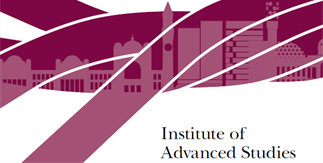Back from study leave after a busy year of research and writing and now fully immersed in teaching again. One of several things I worked on in 2017 was a short guide to Stratford-upon-Avon and its theatres for a forthcoming book on theatre-going in the UK. Below is an abridged version of the entry, which will hopefully appear in print sometime later in the year.

So you’re interesting in going to Stratford-upon-Avon, birthplace of William Shakespeare? Plan for 1-2 days, depending on how much theatre you want to see, and prepare yourself for a charming little oddity of a town that tends to divide visitors. Some love its quietly bustling, timber-beamed way of life; others find it a rather twee imagining of ye olde England intended to snaffle as many tourist ducats as possible. Either way, it really is worth seeing, not least because it’s home to the Royal Shakespeare Company, which has put on an impressive year-round season of Shakespeare, early modern drama, modern classics, and new work since 1961 …
… The main reason you’re here, of course, is the theatre, and if the timing’s right then you may have as many as 3-4 productions to choose from during your stay. Like the National Theatre in London, the RSC has three stages and tends to use them for different kinds of productions. The main house is the Royal Shakespeare Theatre, typically reserved for Shakespeare’s works and modern classics. It’s been here since 1932, when the building was constructed as part of the Shakespeare Memorial Theatre, and until 2007 featured a large, proscenium-arch stage. It was in this space that Laurence Olivier and Vivien Leigh titillated audiences with a chemistry-ridden Macbeth in 1955, John Barton and Peter Hall literally made history with The Wars of the Roses in 1963, and Peter Brook redefined what British Shakespeare could be with his ‘white box’ A Midsummer Night’s Dream in 1970.

Today, the interior space is entirely transformed: following a three-year, £112.8m redevelopment project, it now features a deeply thrust stage, around which a 1,040-person auditorium wraps on three tiers. Recent highlights in this redesigned space have included Rupert Goold’s Las Vegas-inspired The Merchant of Venice in 2011 and Amir Nizar Zuabi’s politically incisive The Comedy of Errors for the theatre’s World Shakespeare Festival the following year. The good seats in the RST really are special, with the space achieving an intimacy that is rare on big, main stages, but watch out for the poor views that come with many of the cheaper seats. In some cases it’s better to go with the discounted restricted view tickets than to chance the costlier seats next to them: the view from the latter may very well be nearly as limited, and for a pretty penny more.

For those interested in something a little different, and for the chance to see one of the most beautiful and dramaturgically powerful spaces in the UK, head next door to the smaller Swan Theatre, built in 1986 and seating 426 people. Though many Shakespeare plays have been staged here through the years—highlights include Greg Doran’s dazzling Anthony and Cleopatra, starring Harriet Walter and Patrick Stewart in 2006, and Maria Aberg’s daringly inventive King John in 2012—these days this theatre tends to be reserved for lesser-known works by Shakespeare’s contemporaries and new plays commissioned by the RSC …
… If after these delights you find yourself with time to spare, just down Waterside you’ll discover the Dirty Duck pub (officially ‘The Black Swan’), site of thespian drinking antics from the mid-twentieth century onwards. For tasty, late-night fare, you can’t beat Hussain’s Indian Cuisine on Chapel Street, rumoured favourite of Sir Ben Kingsley when he tread the boards in the 1970s. After this you’ll no doubt be stumbling back to your B&B for a cosy night’s sleep, or jogging across town to the station to catch the last train back to the big city.





